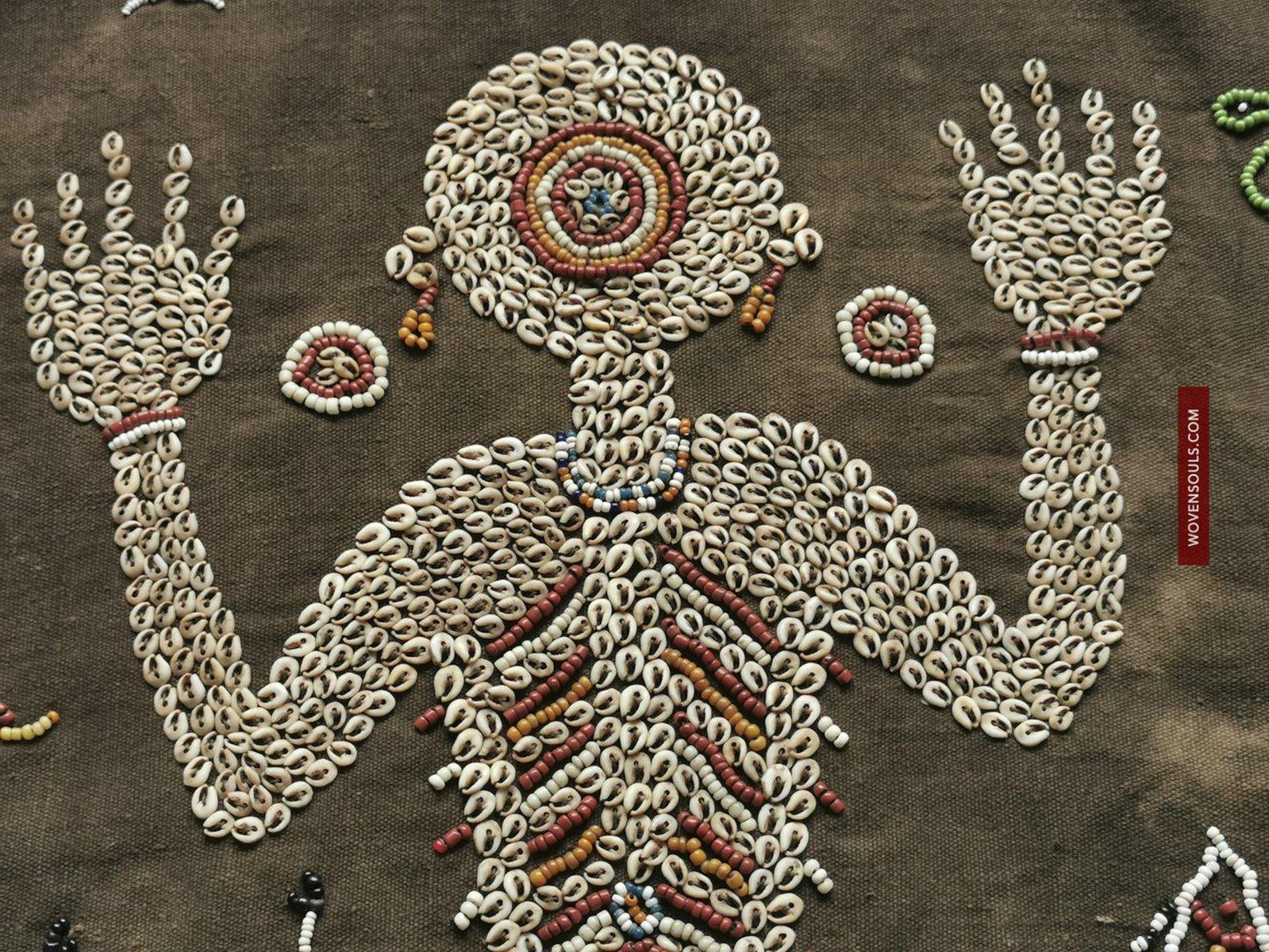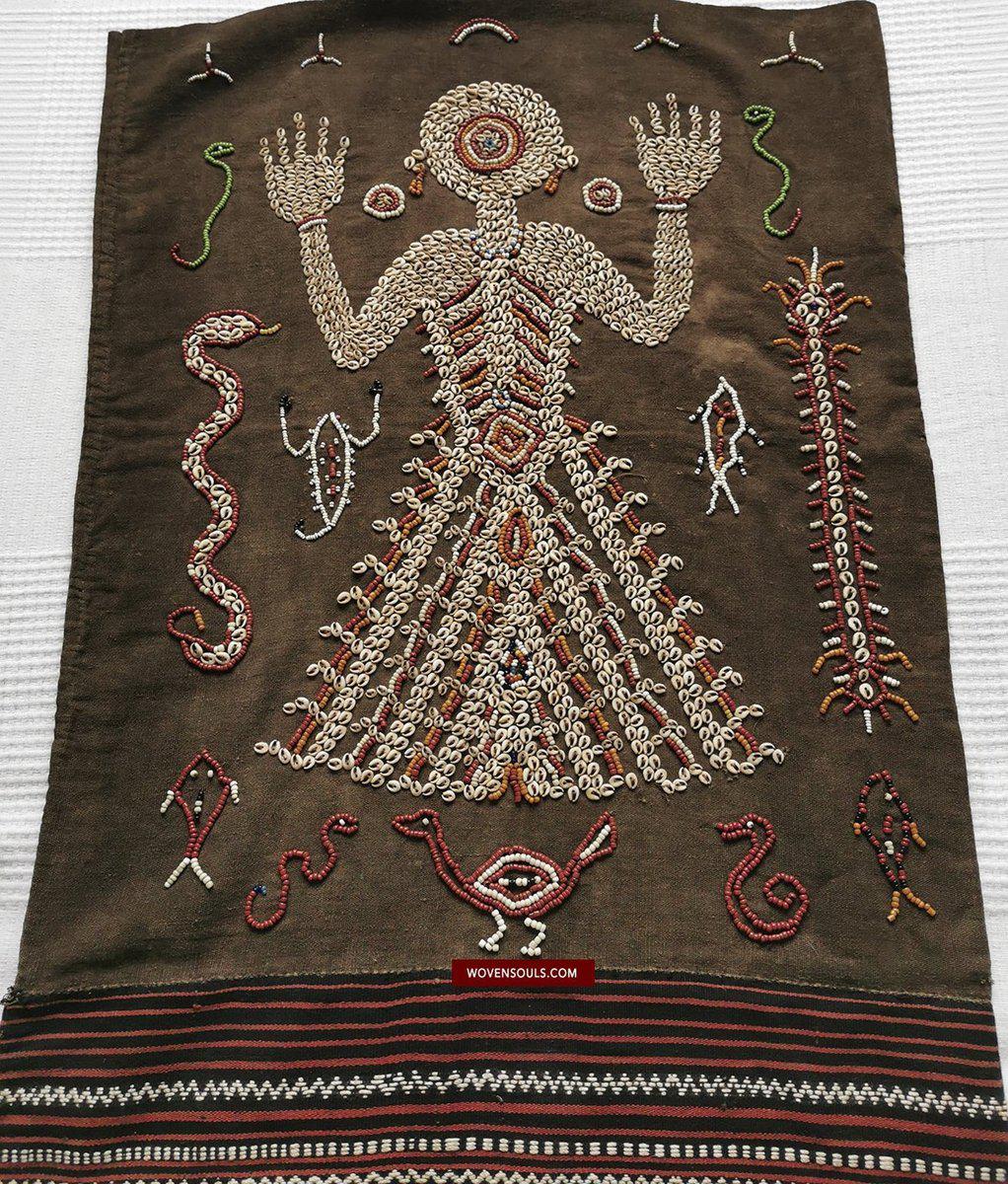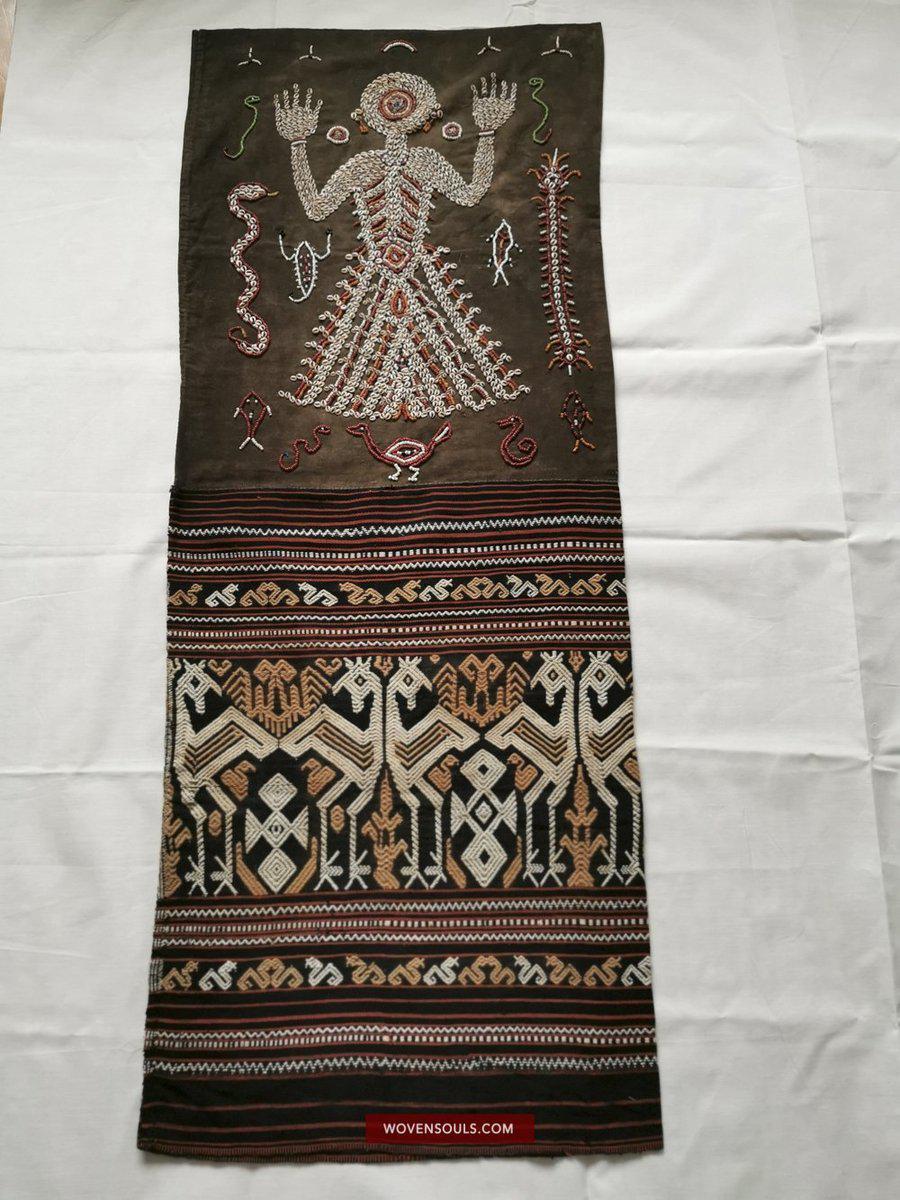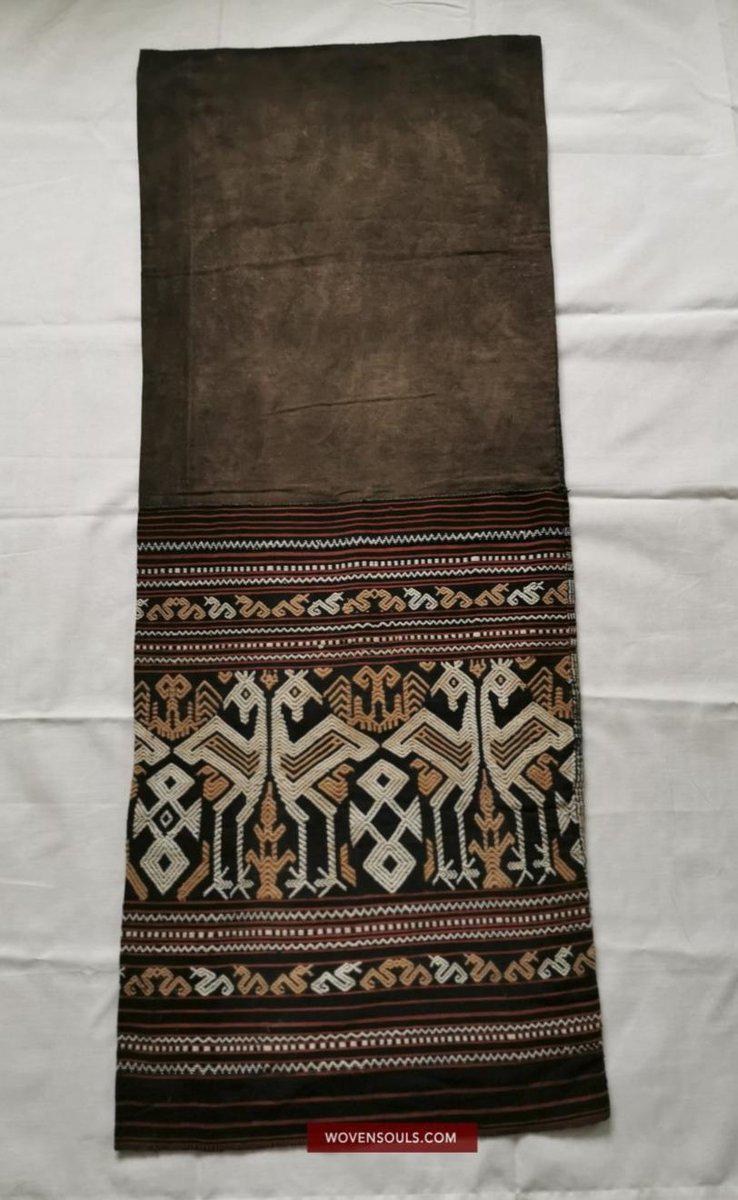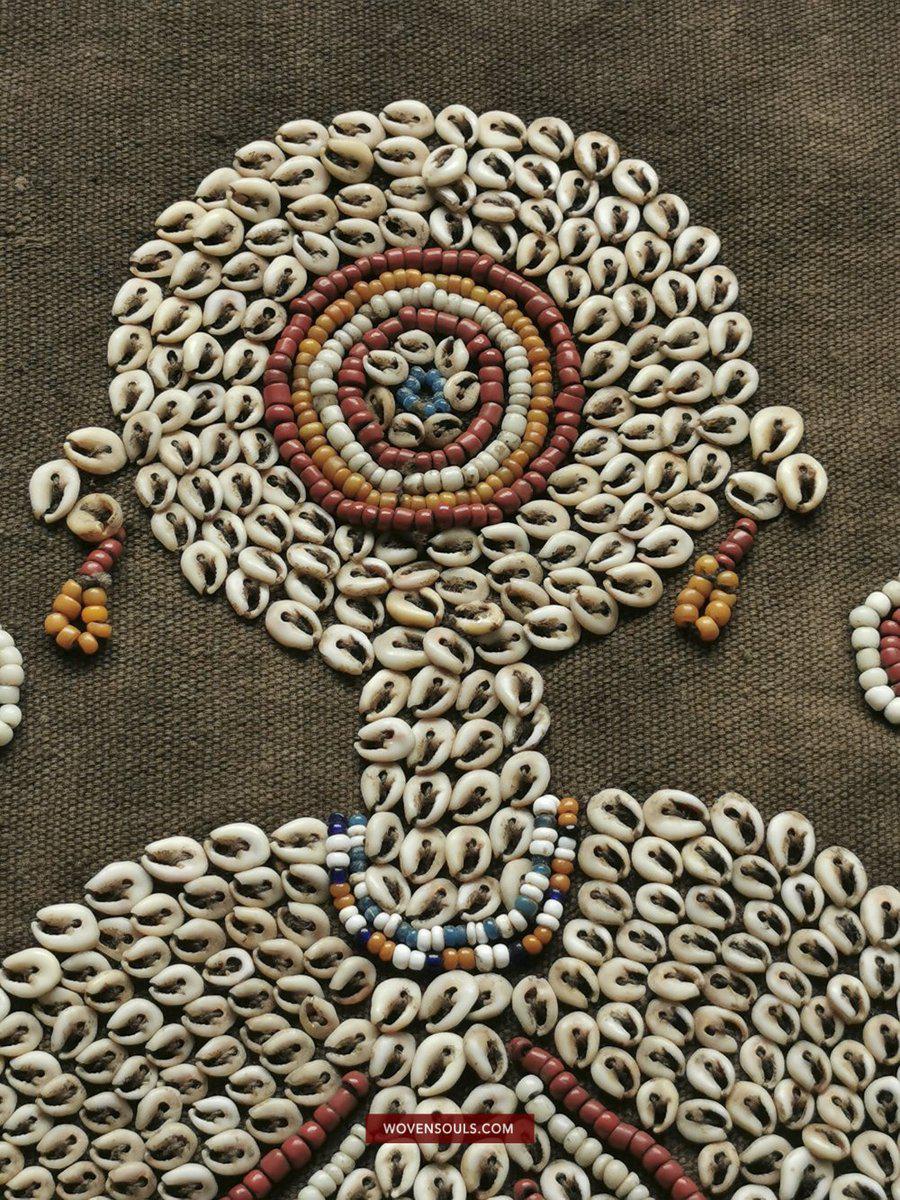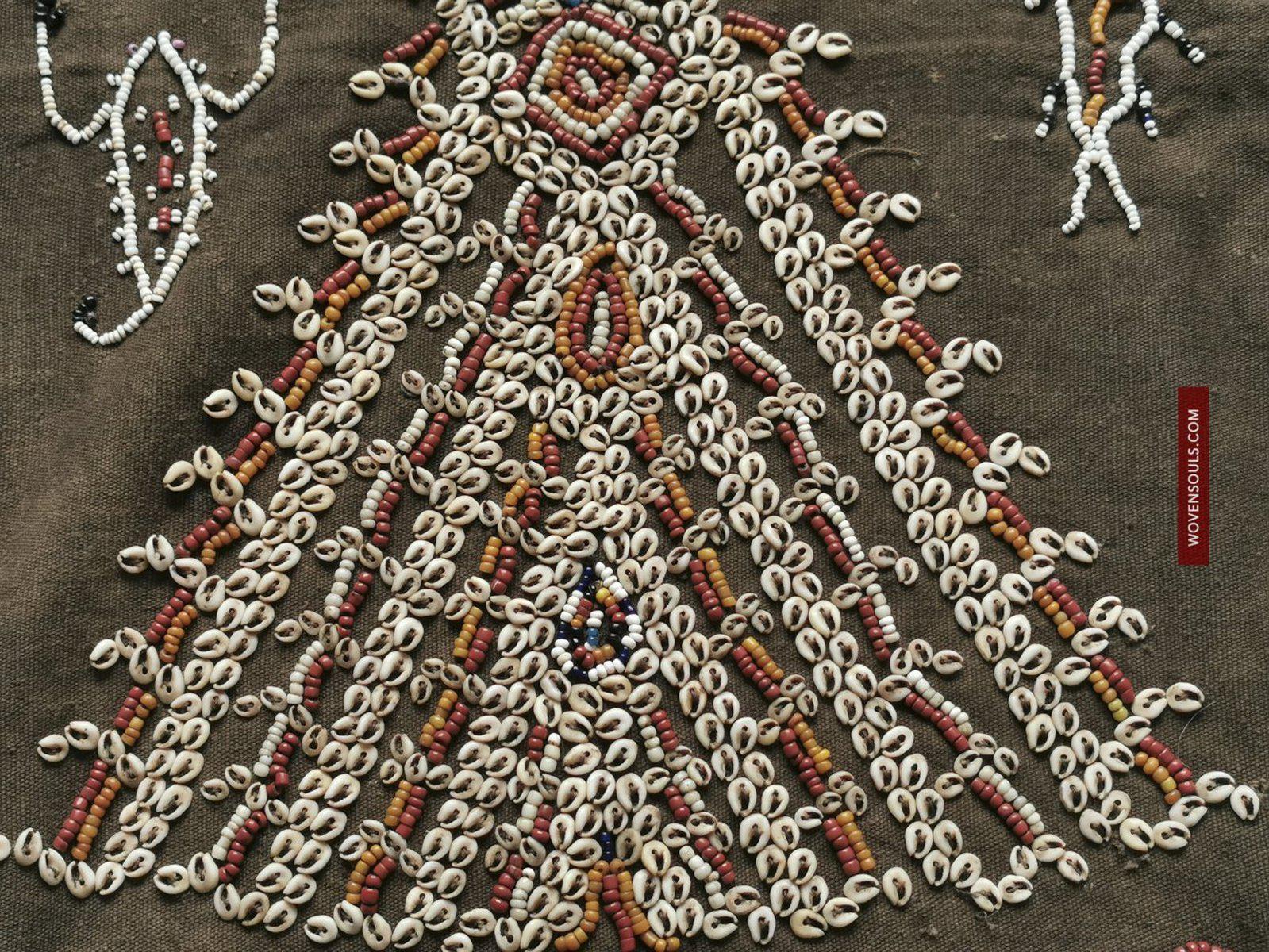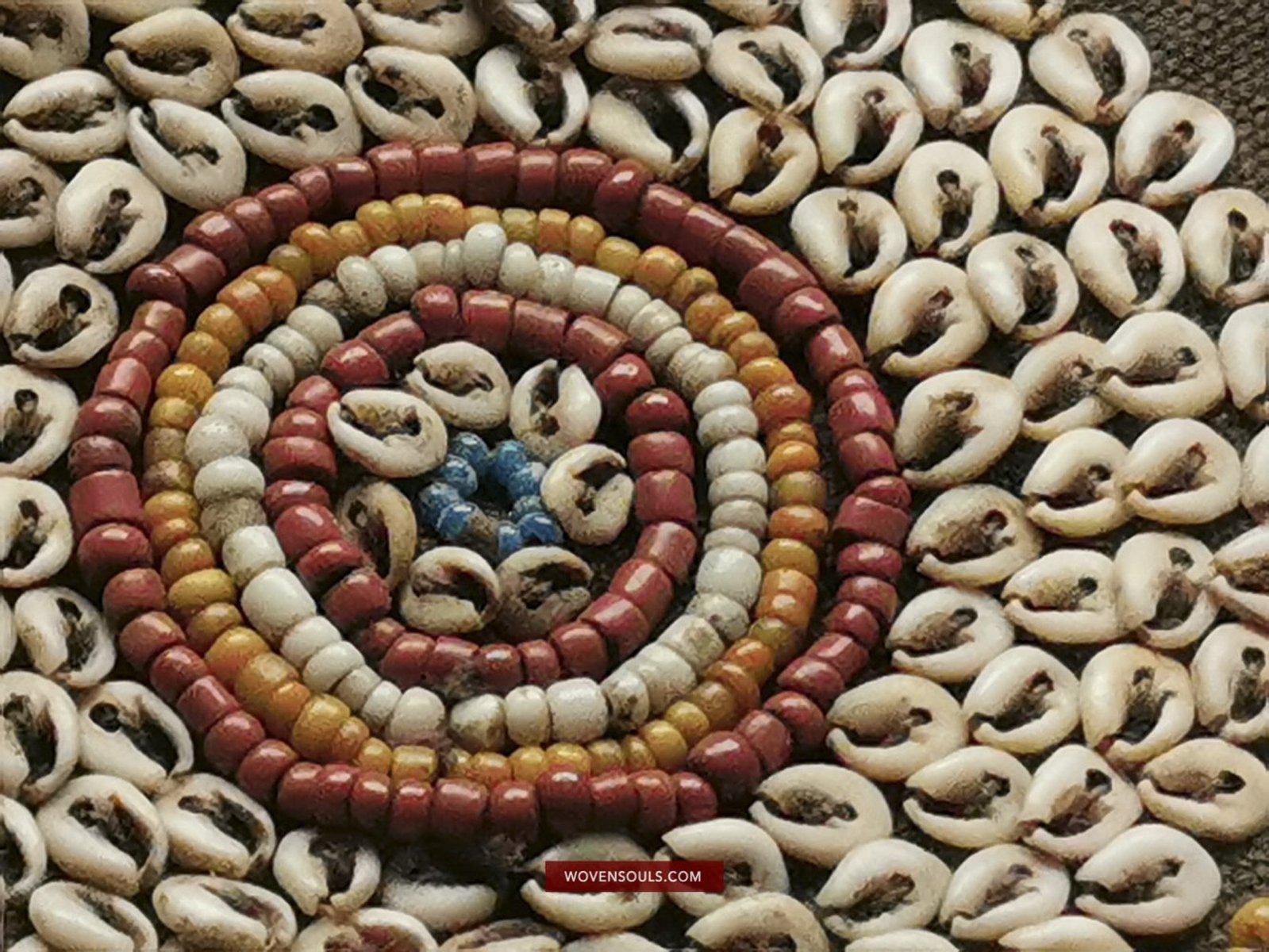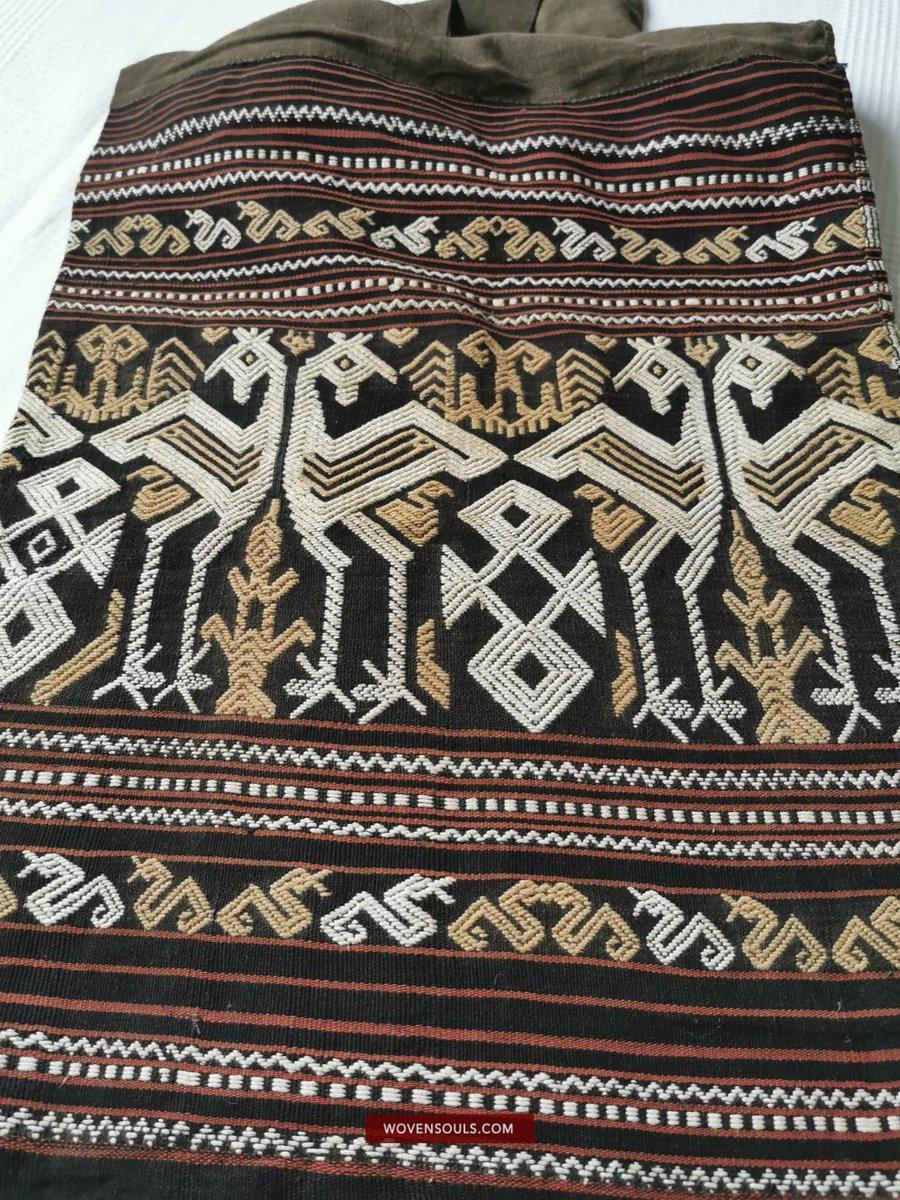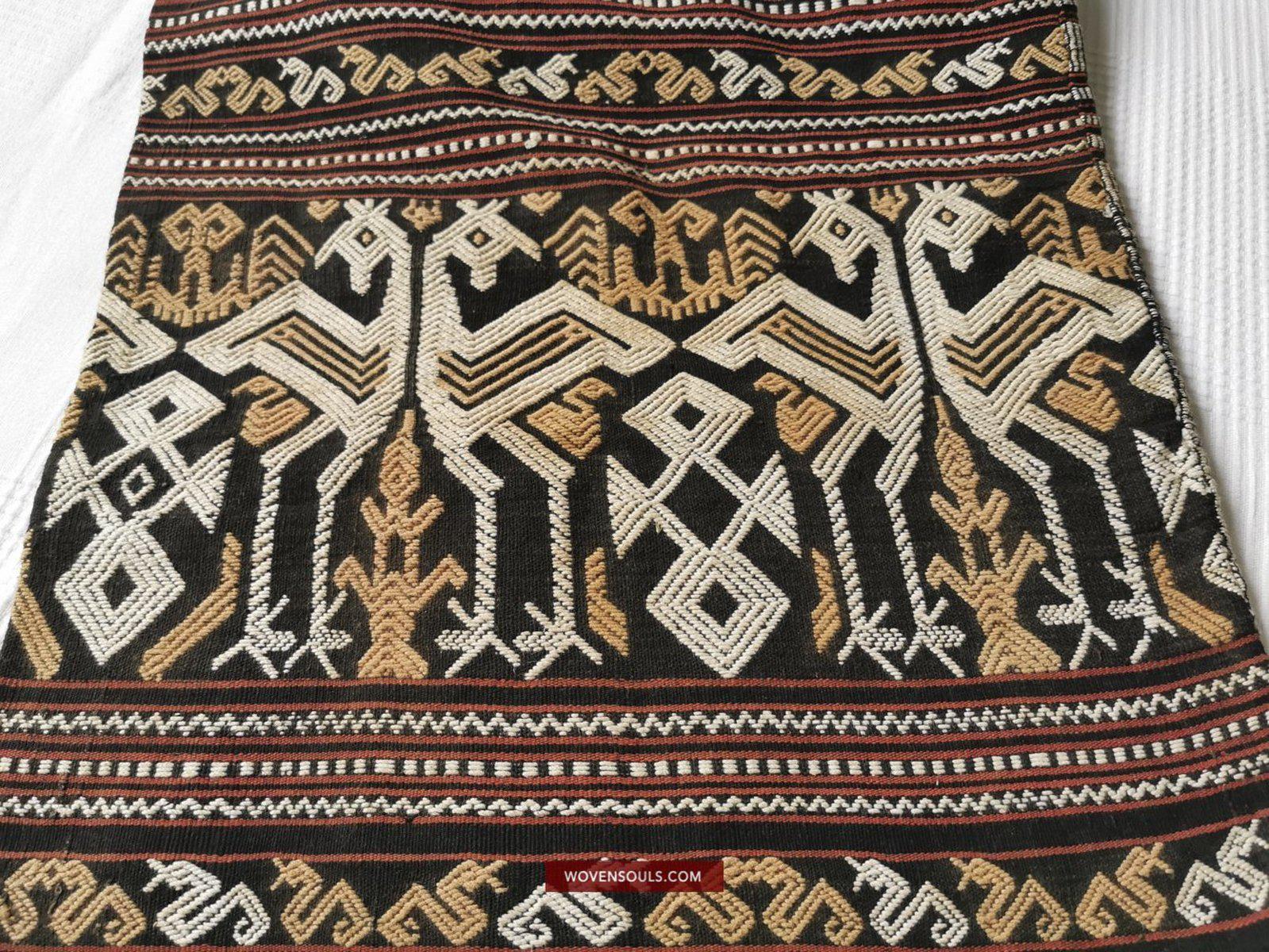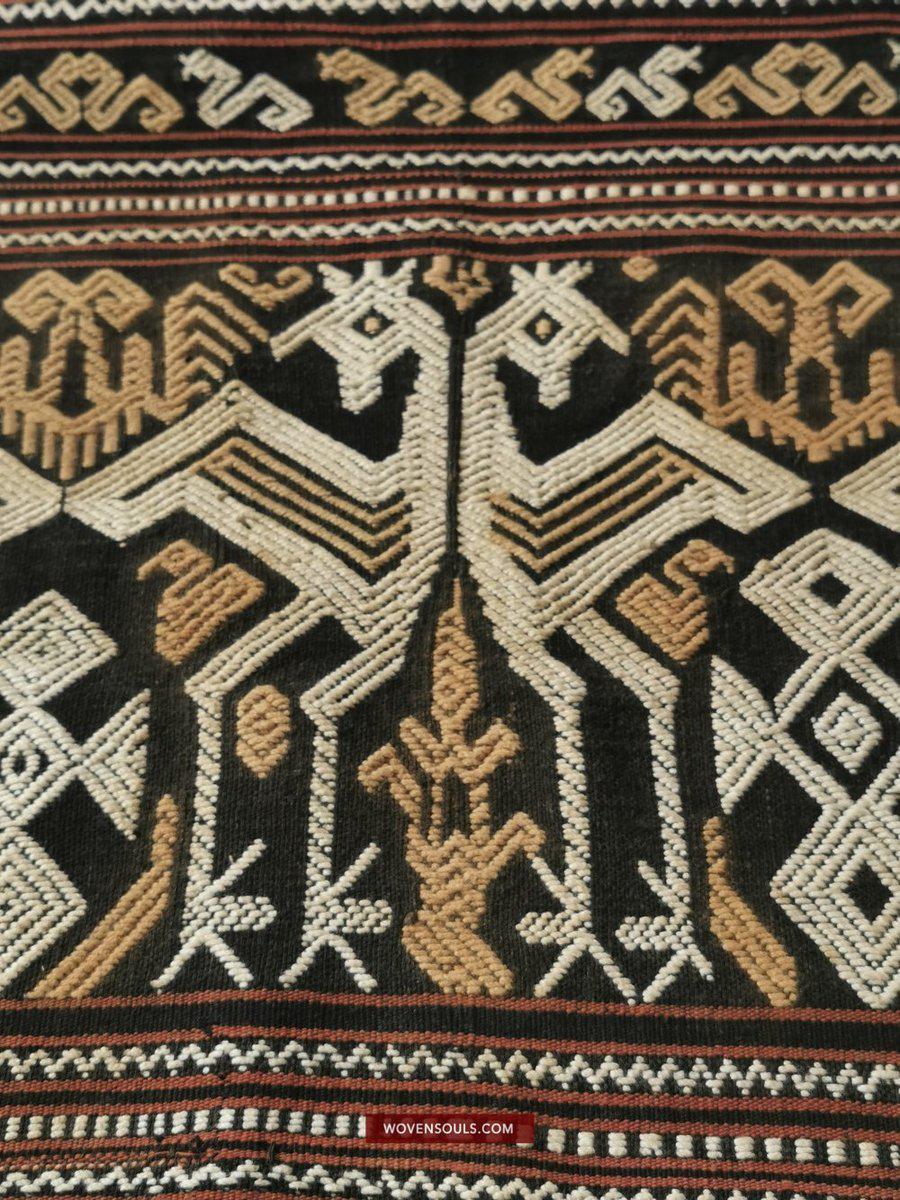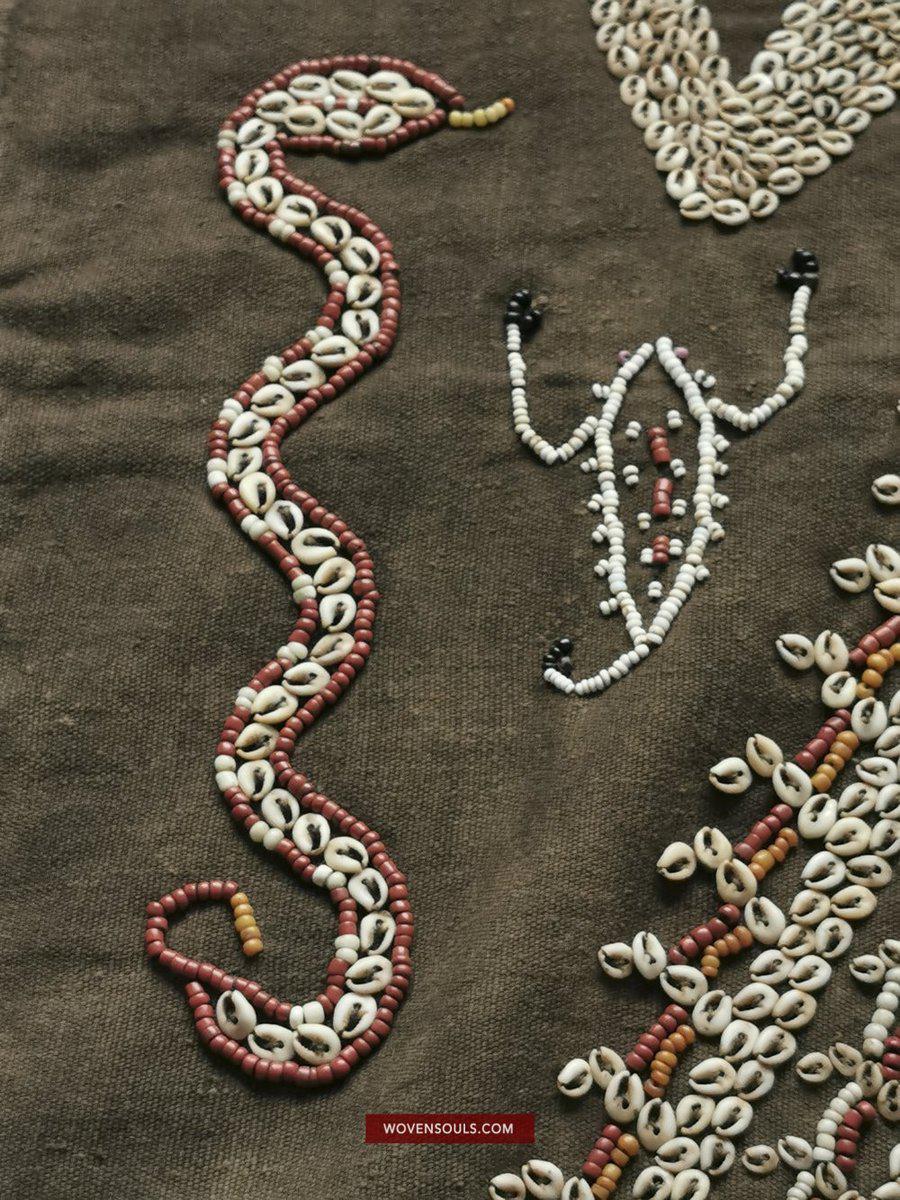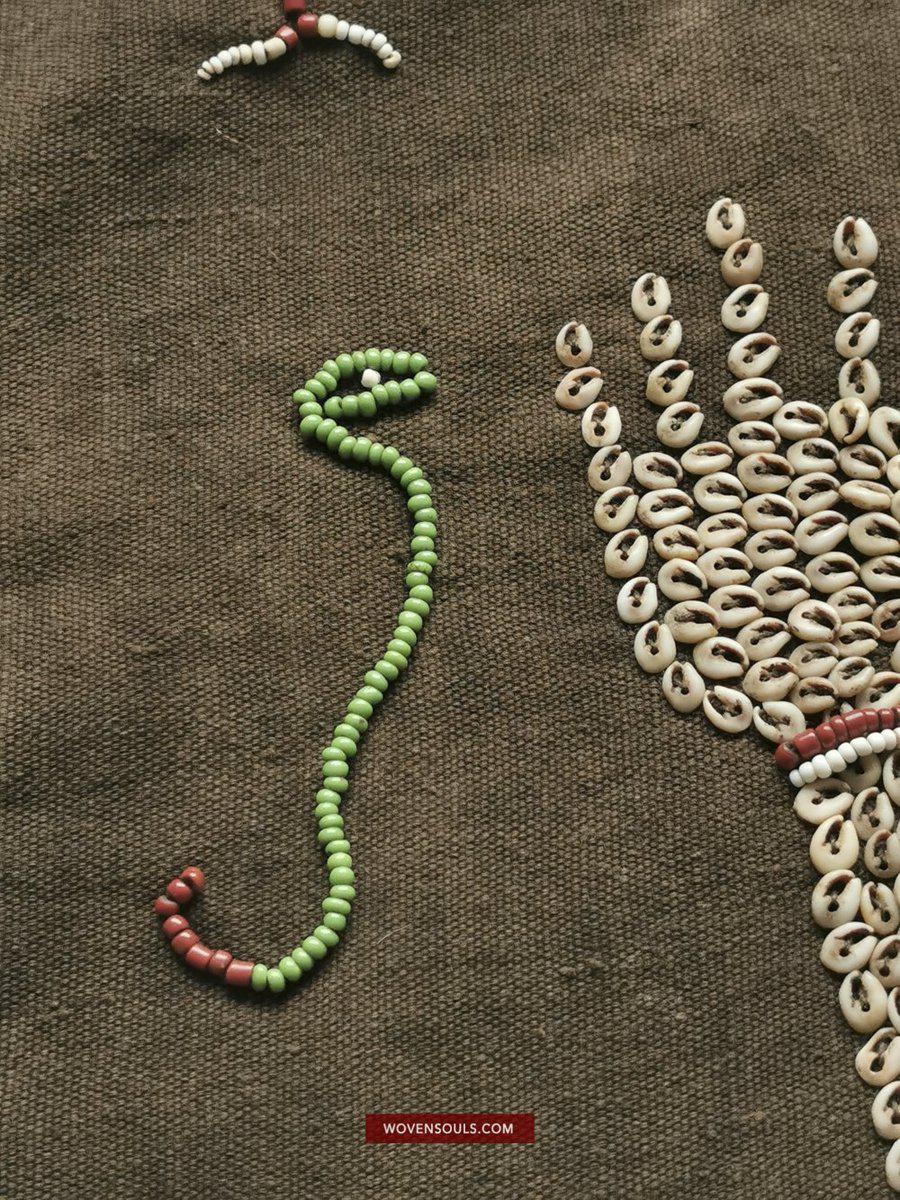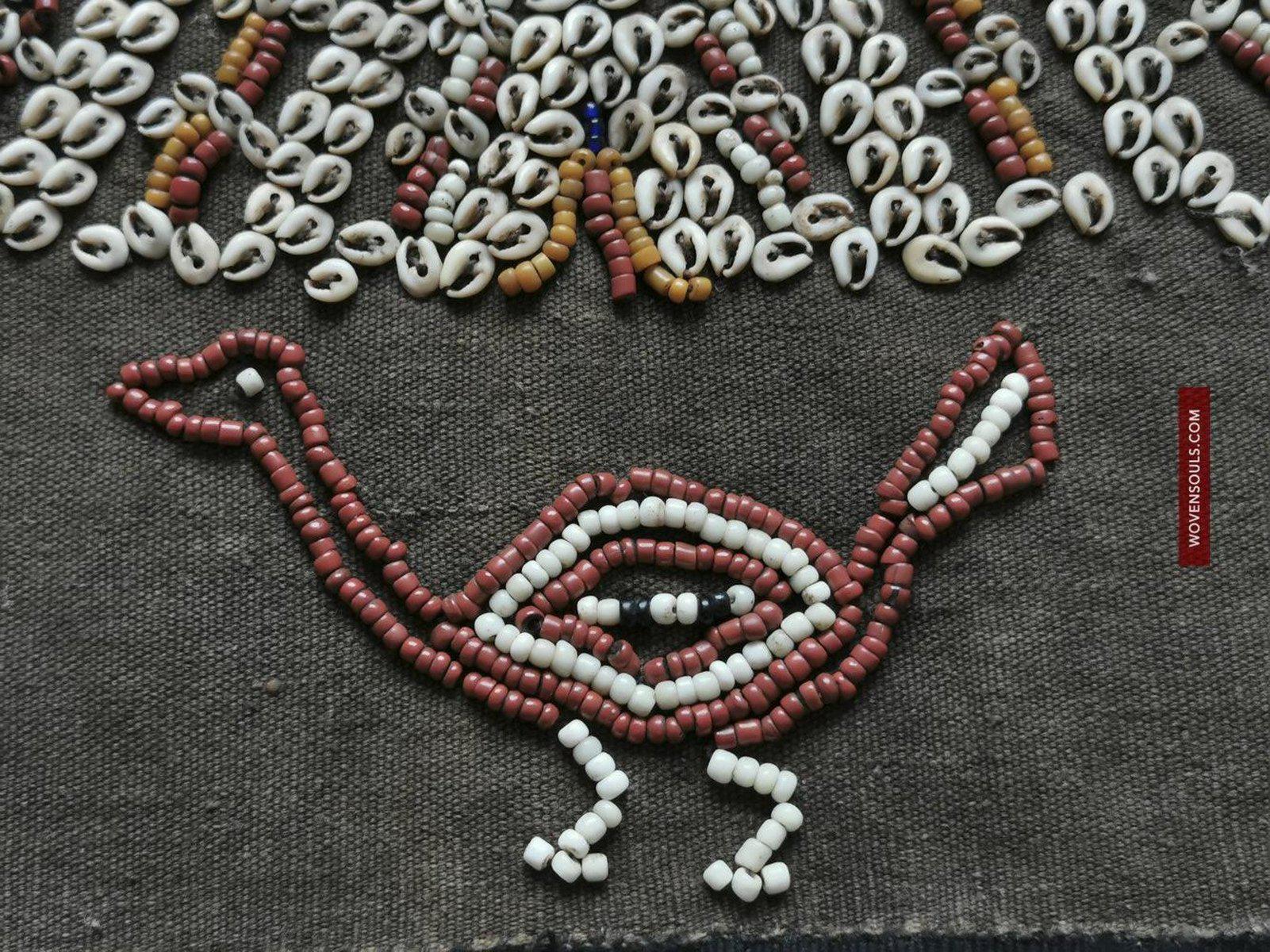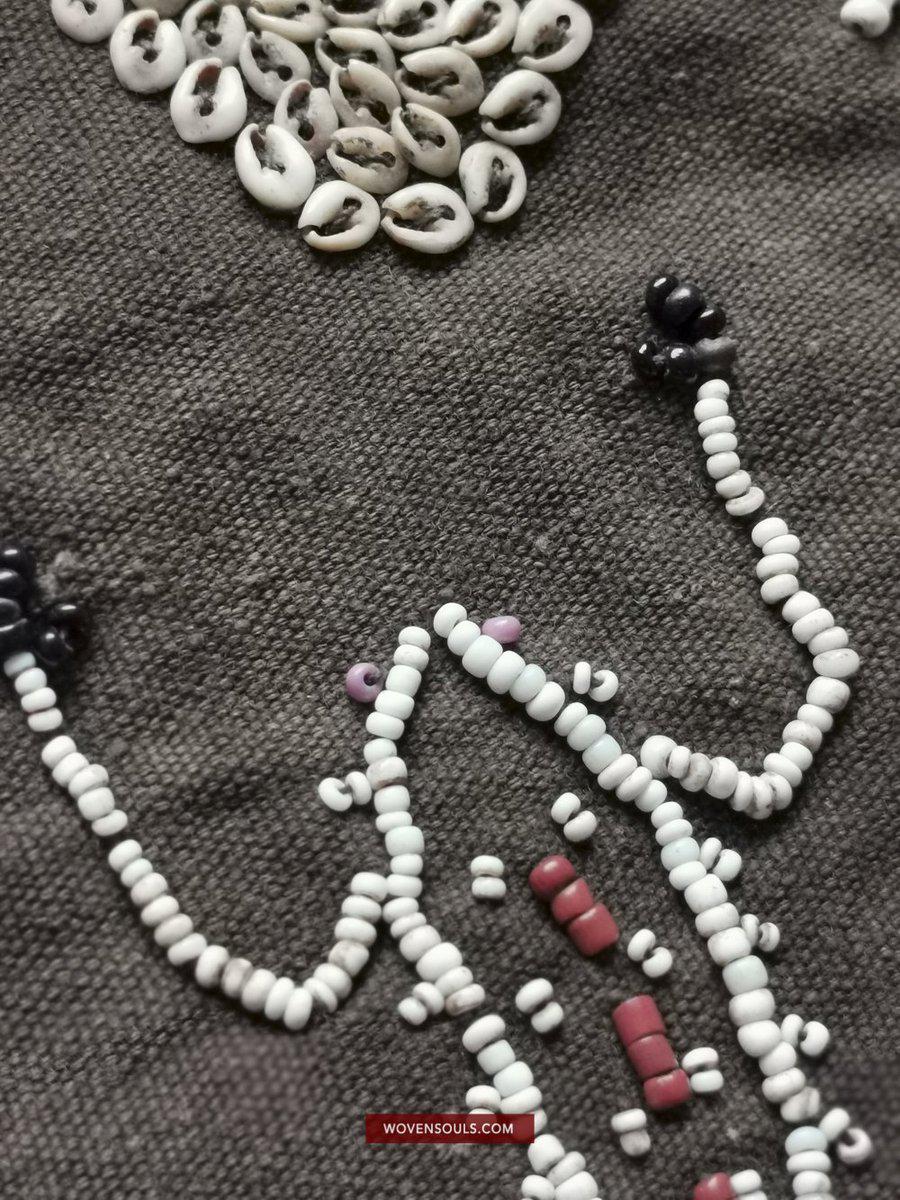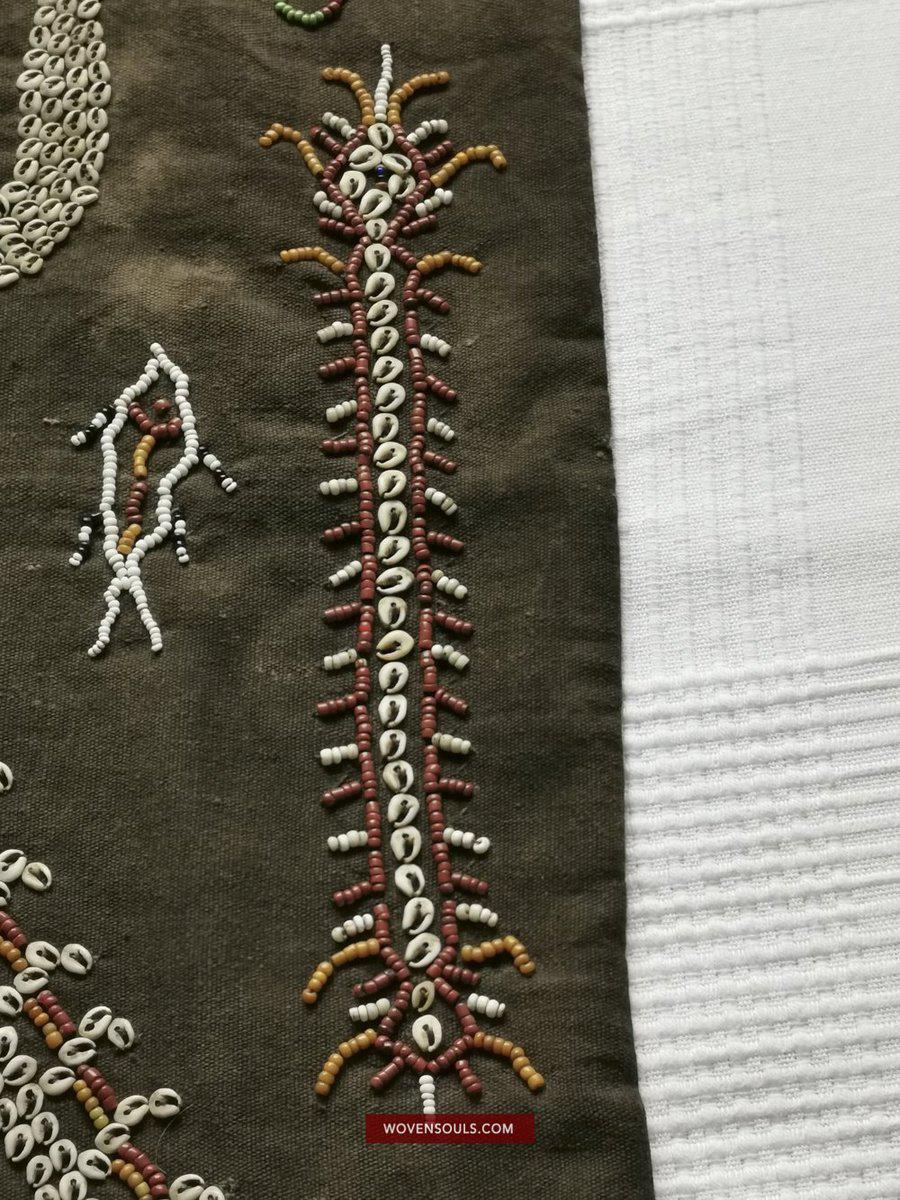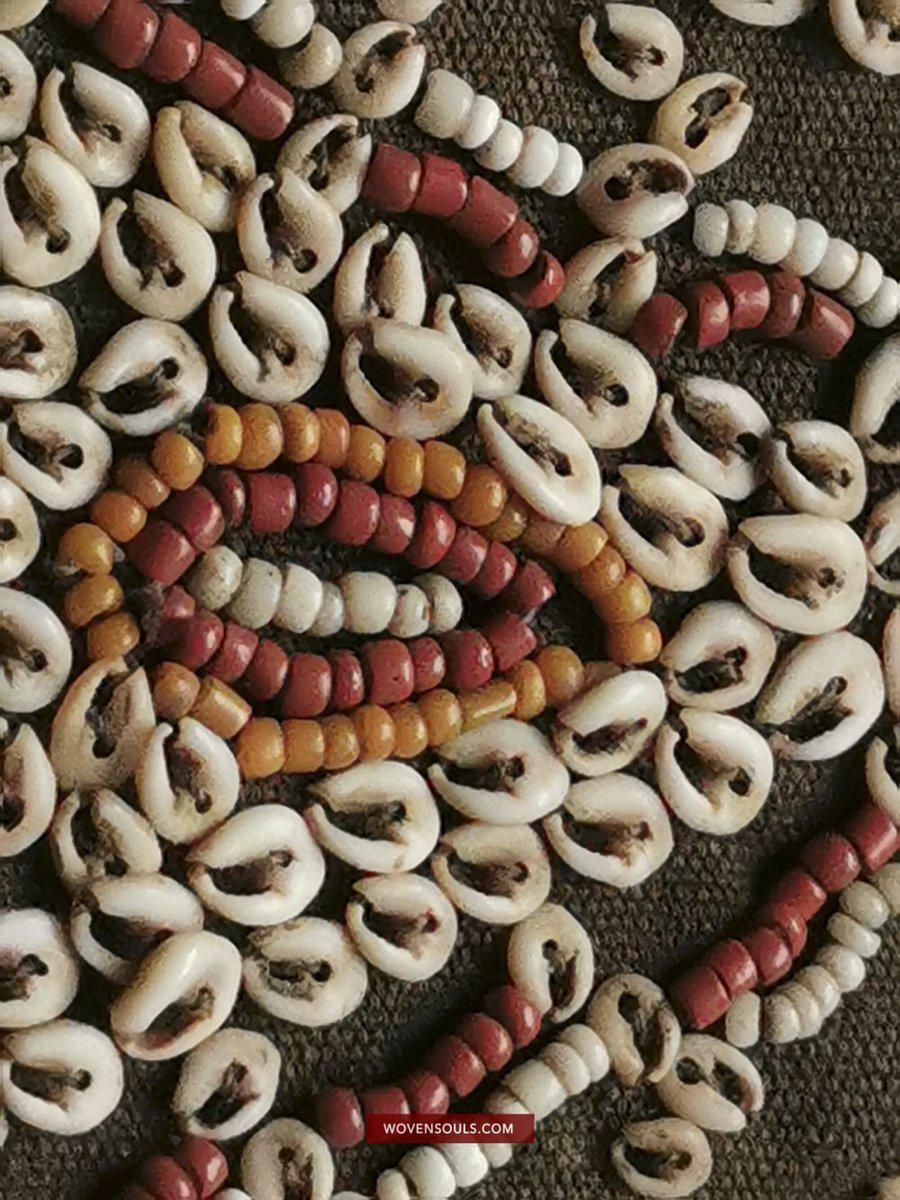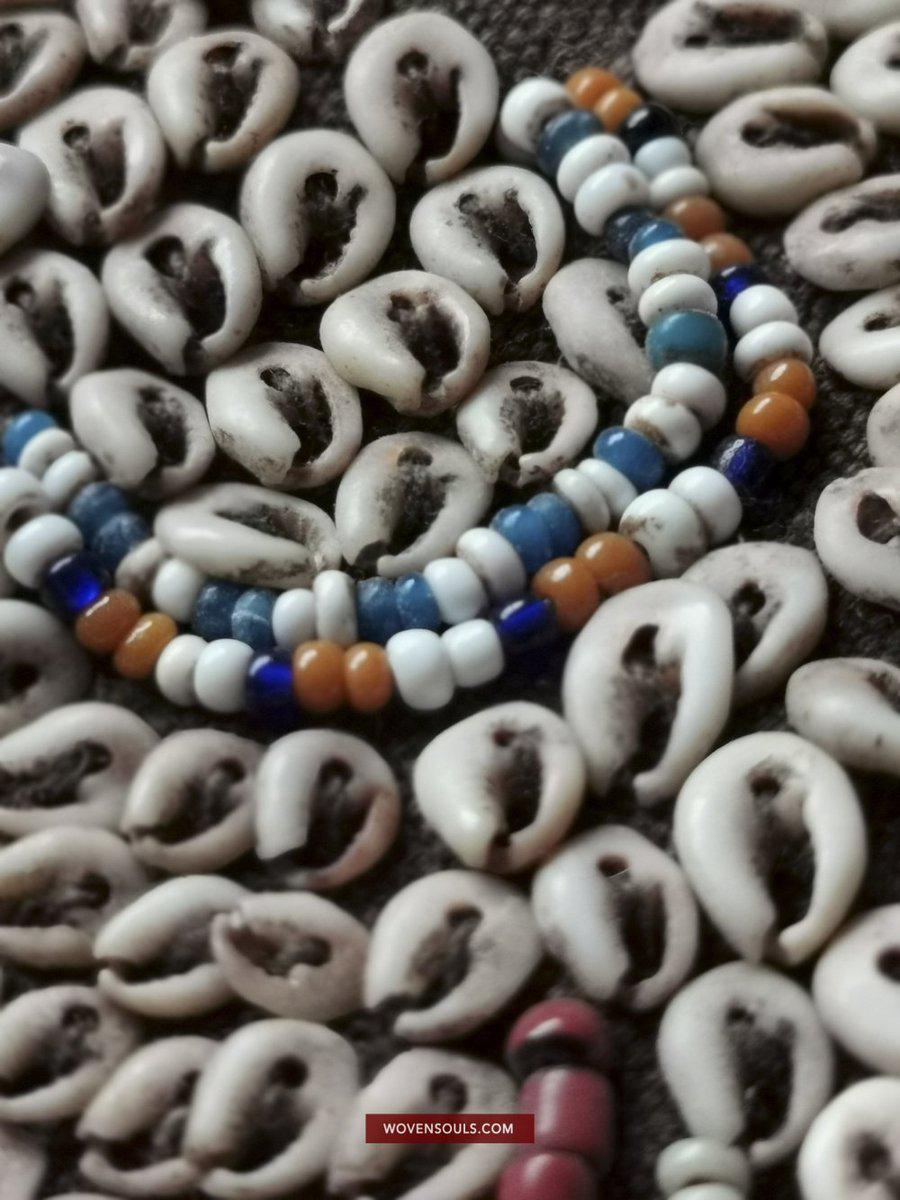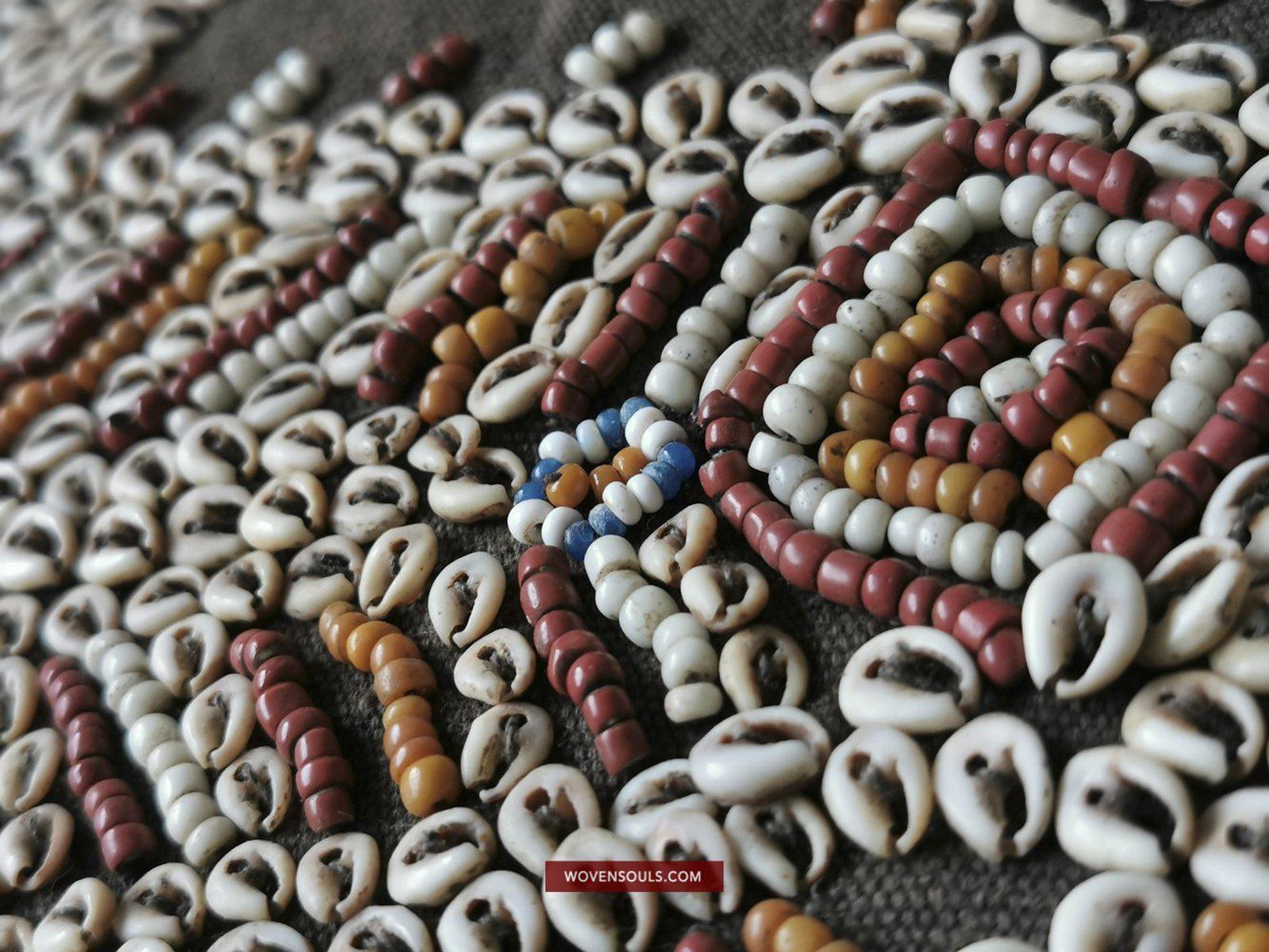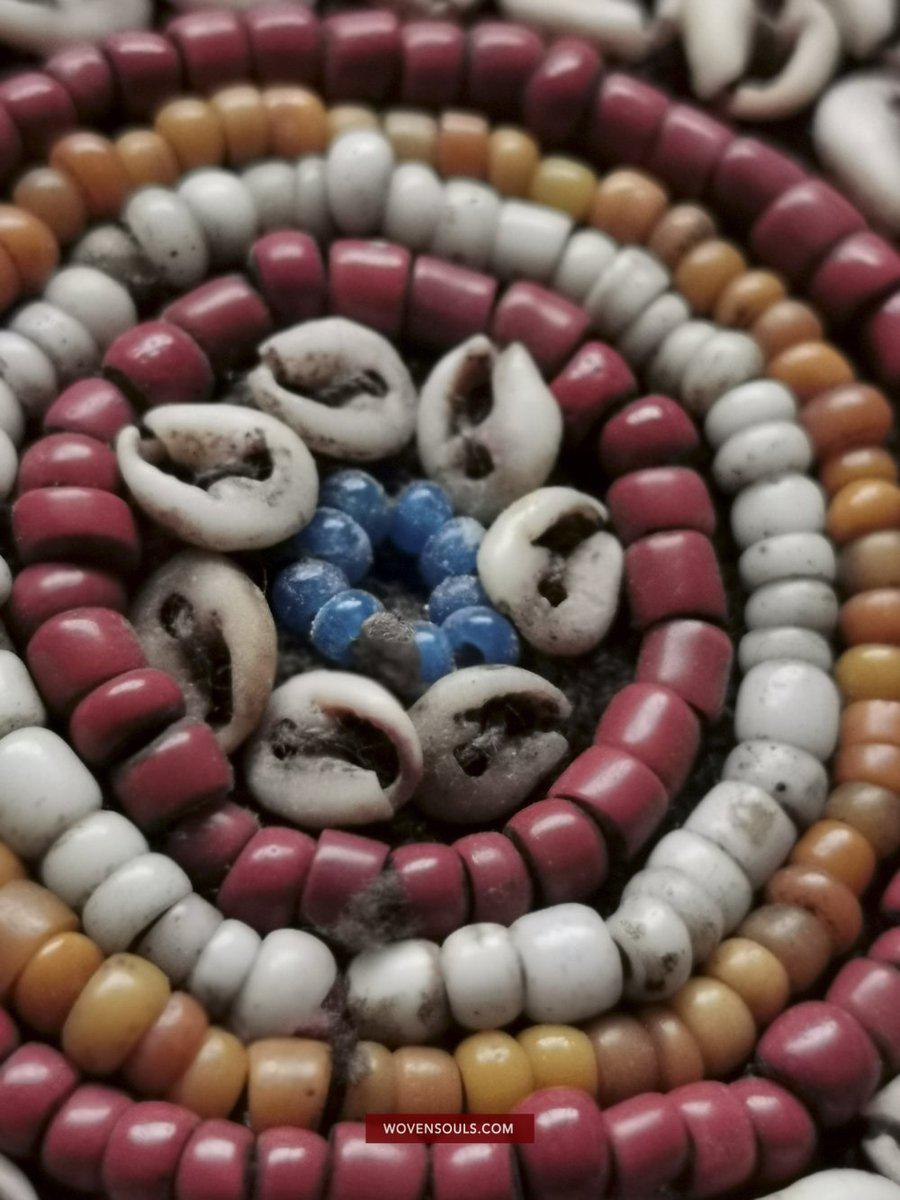1144 Old Sumba Textile Lau Wuti Kau
Old Sumba Ceremonial Weaving with Shells & Beads Lau Wuti Kau
Beautiful Indonesian ceremonial cloth called Lau Witi kau or Lau Wuti Kau
Hand woven on a small loom in natural dyed cotton.
Photos show two halves of the long tube dress, made in two pieces, the top half heavily beaded with small shells and beads and the lower half created with thread weaving.
In the olden days, queens in East Sumba gave these works of art as wedding as wedding gifts or trousseau to their daughters, as a blessing of power of the Marapu. The Marapu is the first deified ancestor of the clan and through his presence through such textiles confers protection. The face of a marapu may never be depicted in the beaded motif on the textile.
Note the bead earrings dangling loose from the Marapu's ears.
Note the bangles & necklace.
Note the pleasing earth color palette of the beads And most importantly note the importance given to the mind / head and to the navel.
Note also the fish, birds, centipede and snakes made out of beads.
Note also the careful arrangement of the shells while creating the pattern.
The marapu motif has been created by sewing on antique beads and cowrie shells that have been sliced using a machete.
And the unusual aspect that I have not found any parallels for in other similar textiles is the lower panel woven with supplementary threads and motifs of ostriches. This panel - that is aesthetically perfectly matched with the upper section - is not seen in other Lau Wuti Kaus.
Age unknown but the shells are estimated to be from the early 1900s and the textile may have been assembled in the early 1900s
Some signs of wear, including fading and slight stains of colours running, a few pulled threads.
Fantastic museum quality ethnographic example - that is both very rustic as well as very aesthetically pleasing - perfect for serious collectors
SIMILAR PIECES:
Honolulu Museum of Art accession 10363.1
National Museum, Jakarta
***
***
This item has spent a lifetime being used for the purpose of its creation with the original artist/user. Signs of this life lived heartily may be present on the piece in the form of stains, thread loss, loose threads, holes, tears, color run and other imperfections. Therefore the condition must be assumed to be “not” perfect. More photos of such imperfections will be provided on request.
***

